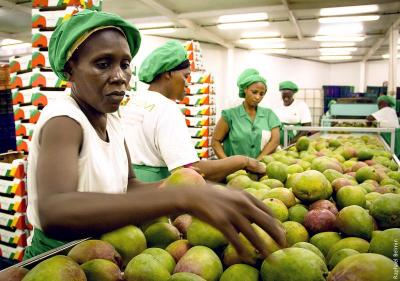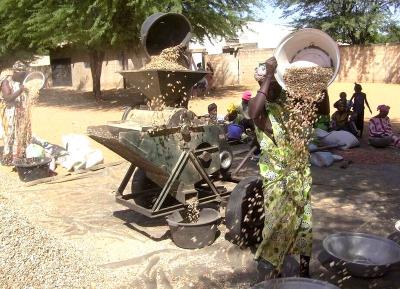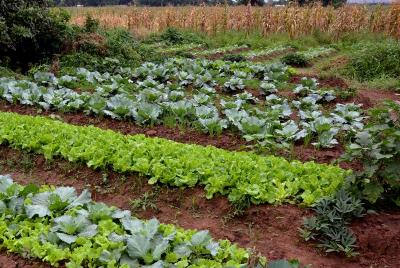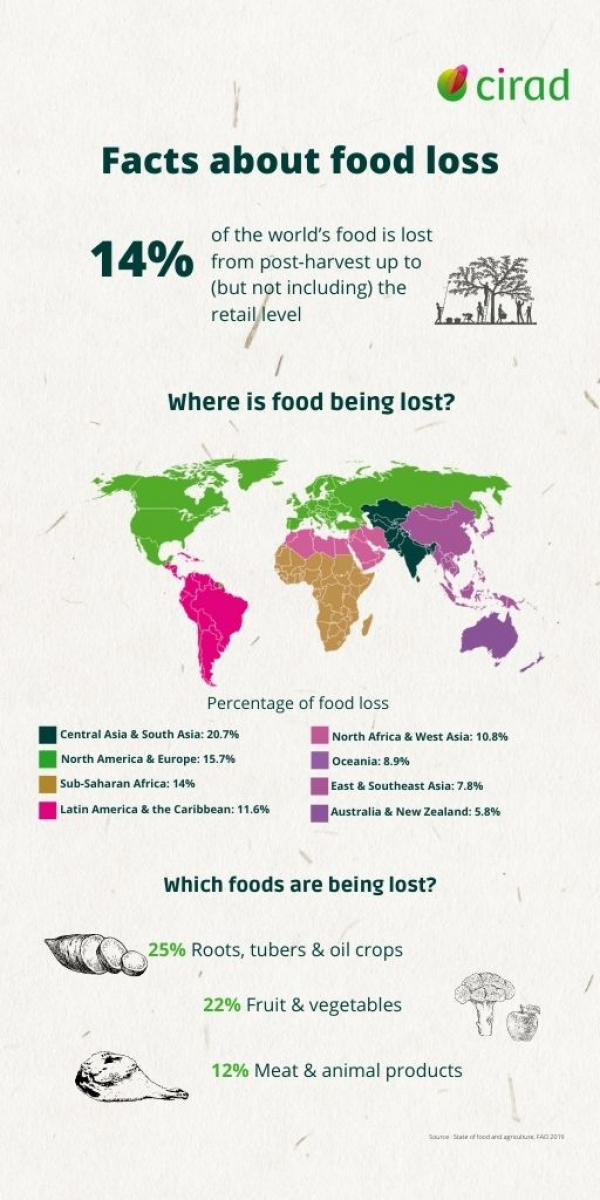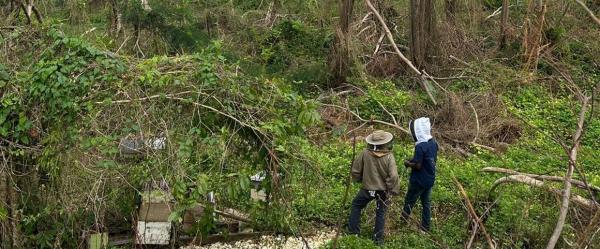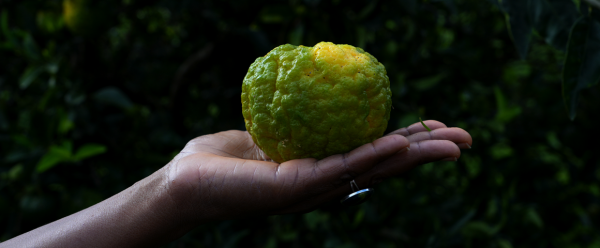Science at work 14 January 2026
- Home
- CIRAD news
- News
- 10% of global greenhouse gas emissions linked to food loss and waste
10% of global greenhouse gas emissions are linked to food loss and waste
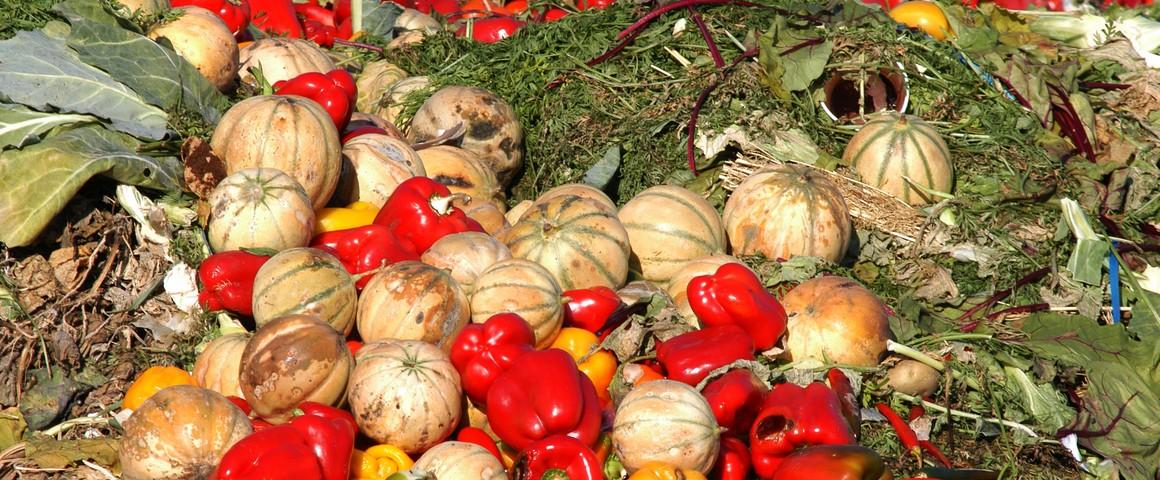
Food loss and waste is a key element in CIRAD’s strategy © Eberhard, AdobeStock
29 September marks the second International Day of Awareness of Food Loss and Waste. The topic is central to the main current global issues. That of food security, obviously, but also that of climate change, since non-consumed food accounts for 10% of the greenhouse gas generated worldwide by human activities.
The United Nations Food Systems Summit on 23 September was the culmination of a lengthy process in which all stakeholders were invited to suggest solutions to build more sustainable, inclusive, fair and healthy food systems. Food loss and waste is one of the key issues flagged up by the process.
Food loss and waste is also a key element in CIRAD’s strategy. Our projects cover postharvest losses and food wastage, as well as waste food recycling, from pitchfork to dustbin.
Strengthening African food systems in the face of climate change and food insecurity - SAFOODS project
The aim of the project is to assess the climate-related constraints on fruit and vegetable food systems, and to work with value chain stakeholders to build innovations.
Based on the diets of urban consumers, SAFOODS is working to map food chains and identify where waste and loss occur and the critical points where climate change may threaten food chains, and collaborating with local players to build solutions to the weak spots identified.
The project is focusing on two cities in each of two countries with different food security issues and a gradient of climatic situations: Dakar and Ziguinchor in Senegal and Yamoussoukro and Abidjan in Ivory Coast.
> More info
Bioenergy for SMEs in West Africa - BIOSTAR project
BIOSTAR is working to improve energy supplies to agrifood processing SMEs in West Africa, by recycling their waste to produce heat, mechanical power and/or electricity. Developing ways of generating energy from waste will make them more self-sufficient, by securing energy supplies (to drive their hulling, drying, extraction and steaming equipment).
The project will enable agrifood SMEs to set up in rural areas, near agricultural production sites. It will create rural jobs and above all reduce postharvest losses. Such losses are a real scourge, since according to FAO, fruit and vegetable losses at the point of production can top 50% in sub-Saharan Africa, largely due to logistical issues and to the lack of processing facilities in agricultural production areas.
Five agrifood value chains have been chosen because of their economic importance in the target countries, because they involve huge numbers of women, and because they are the object of national sustainable development strategies.
> More info
Periurban market gardening with pooling of resources - MARIGO project
MARIGO set out to develop agroecological periurban market gardening chains in Ivory Coast, to guarantee healthy, sustainable production in a context of climate change.
The project is conducting a diagnosis of the periurban market gardening sector, generating multidisciplinary knowledge of the value chain and of agroecological production systems, and helping players (producers, livestock farmers, traders and consumers) complete the agroecological transition.
It includes a specific component on reducing vegetable losses in terms of both quantity and quality. For instance, developing accessible, innovative postharvest technology will help extend the shelf life of vegetables on local markets.
> More info

























